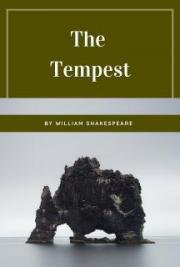ACT V
SCENE I.-An Apartment in SEJANUS' House. Enter SEJANUS.
Sej.
Swell, swell, my joys; and faint not to declare Yourselves as ample as your causes are. I did not live till now; this my first hour; Wherein I see my thoughts reach'd by my power. But this, and gripe my wishes. Great and high, The world knows only two, that's Rome and I. My roof receives me not; 'tis air I tread;
And, at each step, I feel my advanced head Knock out a star in heaven! rear'd to this height, All my desires seem modest, poor, and slight, That did before sound impudent: 'tis place, Not blood, discerns the noble and the base. Is there not something more than to be Caesar? Must we rest there'! it irks t' have come so far, To be so near a stay. Caligula,
Would thou stood'st stiff, and many in our way! Winds lose their strength, when they do empty fly, Unmet of woods or buildings; great fires die, That want their matter to withstand them: so, It is our grief, and will be our loss, to know Our power shall want opposites; unless
The gods, by mixing in the cause, would bless Our fortune with their conquest. That were worth Sejanus' strife; durst fates but bring it forth.
Enter TERENTIUS.
Ter. Safety to great Sejanus!
Sej. Now, Terentius?
Ter. Hears not my lord the wonder?
Sej. Speak it, no.
Ter .
I meet it violent in the people's mouths, Who run in routs to Pompey's theatre, To view your statue, which, they say, sends forth A smoke, as from a furnace, black and dreadful.
Sej.
Some traitor hath put fire in: you, go see, And let the head be taken oft', to look What 'tis. [Exit Terentius.]---
Some slave hath practised an imposture, To stir the people.-How now! why return you?
Reenter TERENTIUS, with SATRIUS and NATTA. Sat.
The head, my lord, already is ta'en off,
I saw it; and, at opening, there leapt out
A great and monstrous serpent.
Sej.
Monstrous! why?
Had it a beard, and horns? no heart? a tongue Forked as flattery? look'd it of the hue, To such as live in great men's bosoms? was The spirit of it Macro's?
Nat.
May it please
The most divine Sejanus, in my days, (And by his sacred fortune, I affirm it,) I have not seen a more extended, grown, Foul, spotted, venomous, ugly---
Sej.
O, the fates!
What a wild muster's here of attributes, T' express a worm, a snake!
Ter .
But how that should Come there, my lord!
Sej.
What, and you too, Terentius! I think you mean to make 't a prodigy In your reporting.
Ter. Can the wise Sejanus
Think heaven hath meant it less!
Sej.
O, superstition!
Why, then the falling of our bed, that brake This morning, burden'd with the populous weight, Of our expecting clients, to salute us;
Or running of the cat betwixt our legs,
As we set forth unto the Capitol, Were prodigies.
Ter .
I think them ominous;
And would they had not happened! As, to-day, The fate of some your servants: who, declining Their way, not able, for the throng, to follow, Slipt down the Gemonies, and brake their necks! Besides, in taking your last augury,
No prosperous bird appear'd; but croaking ravens Flagg'd up and down, and from the sacrifice Flew to the prison, where they sat all night, Beating the air with their obstreperous beaks! I dare not counsel, but I could entreat,
That great Sejanus would attempt the gods Once more with sacrifice.
Sej.
What excellent fools
Religion makes of men! Believes Terentius, If these were dangers, as I shame to think them, The gods could change the certain course of fate! Or, if they could they would, now in a moment, For a beeve's fat, or less, be bribed to invert Those long decrees? Then think the gods, like flies, Are to be taken with the steam of flesh,
Or blood, diffused about their altars: think Their power as cheap as I esteem it small.--- Of all the throng that fill th' Olympian hall, And, without pity, lade poor Atlas' back,
I know not that one deity, but Fortune,
To whom I would throw up, in begging smoke, One grain of incense; or whose ear I'd buy With thus much oil. Her I, indeed, adore; And keep her grateful image in my house, Sometime belonging to a Roman king.
But now call'd mine, as by the better style: To her I care not, if, for satisfying
Your scrupulous phant'sies, I go offer. Bid Our priest prepare us honey, milk, and poppy, His masculine odours, and night-vestments: say, Our rites are instant; which perform'd, you'll see How vain, and worthy laughter, your fears be. [Exeunt
SCENE II.-Another Room in the same. Enter COTTA and POMPONIUS.
Cot. Pomponius, whither in such speed?
Pom .
I go
To give my lord Sejanus notice---
Cot. What?
Pom. Of Macro.
Cot. Is he come?
Pom .
Enter'd but now
The house of Regulus
Cot. The opposite consul!
Pom. Some half hour since.
Cot.
And by night too! Stay, sir; I'll bear you company.
Pom. Along then--- [Exeunt
SCENE III.-A Room in REGULUS'S House. Enter MACRO, REGULUS, and Attendant.
Mac .
Tis Caesar's will to have a frequent senate; And therefore must your edict lay deep mulct On such as shall be absent.
Reg .
So it doth.
Bear it my fellow consul to adscribe.
Mac .
And tell him it must early be proclaim'd:
The place Apollo's temple. [Exit Attendant
Reg. That's remember'd.
Mac. And at what hour!
Reg. Yes.
Mac.
You do forget
To send one for the provost of the watch.
Reg. I have not: here he comes. Enter LACO.
Mac.
Gracinus Laco,
You are a friend most welcome: by and by, I'll speak with you.---You must procure this list Of the praetorian cohorts, with the names Of the centurions, and their tribunes.
Reg. Ay.
Mac. I bring you letters, and a health from Caesar---
Lac. Sir, both come well.
Mac.
And hear you? with your note,
Which are the eminent men, and most of action.
Reg. That shall be done you too.
Mac.
Most worthy Laco,
Caesar salutes you.--- [Exit Regulus.]
Consul! death and furies!
Gone now!----The argument will please you, sir. Ho! Regulus! The anger of the gods
Follow your diligent legs, and overtake 'em, In likeness of the gout!---
[Re-enter REGULUS. O, my good lord,
We lack'd you present; I would pray you send Another to Fulcinius Trio, straight,
To tell him you will come, and speak with him:
The matter we'll devise, to stay him there,
While I with Laco do survey the watch. [Exit Regulus. What are your strengths, Gracinus?
Lac. Seven cohorts.
Mac .
You see what Caesar writes; and---Gone again! H' has sure a vein of mercury in his feet.--- Know you what store of the praetorian soldiers Sejanus holds about him, for his guard?
Lac.
I cannot the just number; but, I think, Three centuries.
Mac. Three! good.
Lac. At most not four.
Mac. And who be those centurions?
Lac.
That the consul
Can best deliver you.
Mac .
When he's away!
Spite on his nimble industry---Gracinus, You find what place you hold. there, in the trust Of royal Caesar?
Lac. Ay, and I am---
Mac .
Sir,
The honours there proposed are but beginnings Of his great favours.
Lac. They are more---
Mac .
I heard him
When he did study what to add.
Lac .
My life,
And all I hold---
Mac.
You were his own first choice:
Which doth confirm as much as you can speak; And will, if we succeed, make more---Your guards Are seven cohorts, you say?
Lac. Yes.
Mac .
Those we must
Hold still in readiness and undischarged.
Lac. I understand so much. But how it can---
Mac . Be done without suspicion, you'll object? Re-enter REGULUS.
Reg. What's that?
Lac .
The keeping of the watch in arms, When morning comes.
Mac .
The senate shall be met, and set So early in the temple, as all mark Of that shall be avoided.
Reg.
If we need,
We have commission to possess the palace, Enlarge prince Drusus, and make him our chief.
Mac.
That secret would have burnt his reverend mouth, Had he not spit it out now: by the gods, You carry things too---Let me borrow a man Or two, to bear these---That of freeing Drusus, Caesar projected as the last and utmost; Not else to be remember'd.
Enter Servants.
Reg. Here are servants.
Mac .
These to Arruntius, these to Lepidus;
This bear to Cotta, this to Latiaris.
If they demand you of me, say I have ta'en
Fresh horse, and am departed. [Exeunt Servants.
You, my lord,
To your colleague, and be you sure to hold him
With long narration of the new fresh favours,
Meant to Sejanus, his great patron; I,
With trusted Laco, here, are for the guards:
Then to divide. For, night hath many eyes,
Whereof, though most do sleep, yet some are spies. [Exeunt
SCENE IV.-A Sacellum (or Chapel) in SEJANUS'S House. Enter Praecones, Flamen, Tubicines, Tibicines, Ministri, SEJANUS, TERENTIUS, SATRIUS, NATTA, etc.
Prae .
Be all profane far hence; fly, fly far off:
Be absent far; far hence be all profane!
[Tub. and Tib. sound while the Flamen washeth.
Fla.
We have been faulty, but repent us now,
And bring pure hands, pure vestments, and pure minds.
1 Min. Pure vessels.
2 Min. And pure offerings.
3 Min. Garlands pure.
Fla.
Bestow your garlands: and, with reverence, place The vervin on the altar.
Prae. Favour your tongues.
[While they sound again, the Flamen takes of the honey with his finger, and tastes, then ministers to all the rest; so of the milk, in an earthen vessel, he deals about; which done, he sprinkleth upon the altar, milk; then imposeth the honey, and kindleth his gums, and after censing about the altar, placeth his censer thereon, into which they put several branches of poppy, and the music ceasing, proceeds.
Fla.
Great mother Fortune, queen of human state, Redress of action, arbitress of fate,
To whom all sway, all power, all empire bows, Be present; and propitious to our vows!
Prae. Favour it with your tongues.
Min. Be present and propitious to our vows!
Omnes. Accept our offering and be pleased, great goddess.
Ter. See, see, the image stirs!
Sat. And turns away!
Nat. Fortune averts her face.
Fla .
Avert, you gods,
The prodigy. Still! still, some pious rite We have neglected. Yet, heaven be appeased, And be all tokens false and void, that speak Thy present wrath!
Sej .
Be thou dumb, scrupulous priest:
And gather up thyself, with these thy wares Which I, in spite of thy blind mistress, or Thy juggling mystery, religion, throw
Thus scorned on the earth.
[Overturns the statue and the altar.
Nay, hold thy look
Averted till I woo thee turn again
And thou shalt stand to all posterity,
The eternal game and laughter, with thy neck Writh'd to thy tail, like a ridiculous cat.
Avoid these fumes, these superstitious lights, And all these cozening ceremonies: you,
Your pure and spiced conscience!
[Exeunt all but Sejanus, Terent., Satri., and Natta.
I, the slave
And mock of fools, scorn on my worthy head! That have been titled and adored a god, Yea, sacrificed unto, myself, in Rome,
No less than Jove: and I be brought to do
A peevish giglot, rites! perhaps the thought
And shame of that, made fortune turn her face, Knowing herself the lesser deity,
And but my servant.-Bashful queen, if so,
Sejanus thanks thy modesty.---Who's that?
Enter POMPONIUS and MINUTIUS.
Pom .
His fortune suffers, till he hears my news: I have waited here too long. Macro, my lord---
Sej. Speak lower and withdraw. [Takes him aside.
Ter. Are these things true?
Min. Thousands are gazing at it in the streets.
Sej. What's that?
Ter .
Minutius tells us here, my lord,
That a new head being set upon your statue, A rope is since found wreath'd about it! and, But now a fiery meteor in the form
Of a great ball was seen to roll along The troubled air, where yet it hangs unperfect, The amazing wonder of the multitude!
Sej. No more. That Macro's come, is more than all!
Ter. Is Macro come?
Pom. I saw him.
Ter. Where? with whom?
Pom. With Regulus.
Sej. Terentius!
Per. My lord.
Sej.
Send for the tribunes, we will straight have up More of the soldiers for our guard. [Exit Per.] Minutius, We pray you go for Cotta, Latiaris,
Trio, the consul, or what senators
You know are sure, and ours. [Exit Min.] You, my good Natta, For Laco, provost of the watch. [Exit Nat.] Now, Satrius, The time of proof comes on; arm all our servants,
And without tumult. [Exit Sat.] You, Pomponius,
Hold some good correspondence with the consul:
Attempt him, noble friend. [Exit Pomp.] These things begin To look like dangers, now, worthy my fates.
Fortune, I see thy worst: let doubtful states,
And things uncertain, hang upon thy will:
Me surest death shall render certain still.
Yet, why is now my thought turn'd toward death,
Whom fates have let go on, so far in breath,
Uncheck'd or unreproved? I that did help
To fell the lofty cedar of the world,
Germanicus; that at one stroke cut down
Drusus, that upright elm; wither'd his vine;
Laid Silius and Sabinus, two strong oaks,
Flat on the earth; besides those other shrubs,
Cordus and Sosia, Claudia Pulchra,
Furnius and Gallus, which I have grubb'd up;
And since, have set my axe so strong and deep
Into the root of spreading Agrippina;
Lopt off and scatter'd her proud branches,
Nero. Drusus; and Caius too, although re-planted. If you will, Destinies, that after all,
I faint now ere I touch my period,
You are but cruel; and I already have done
Things great enough. All Rome hath been my slave; The senate sate an idle looker on,
And witness of my power; when I have blush'd
More to command than it to suffer: all
The fathers have sate ready and prepared.
To give me empire, temples, or their throats.
When I would ask 'em; and what crowns the top,
Rome, senate, people, all the world have seen
Jove, but my equal; Caesar, but my second.
'Tis then your malice, Fates, who, but your own,
Envy and fear to have any power long known.
SCENE V.---A Room in the same.
Enter TERENTIUS and Tribunes.
Ter . Stay here: I'll give his lordship, you are come.
Enter MINUTIUS, with COTTA and LATIARIS.
Min.
Marcus Terentius, 'pray you tell my lord
Here's Cotta, and Latiaris.
Ter. Sir, I shall.
Cot.
My letter is the very same with yours; Only requires me to be present there, And give my voice to strengthen his design.
Lat. Names he not what it is?
Cot. No, nor to you.
Lat. 'Tis strange and singular doubtful!
Cot.
So it is.
It may be all is left to lord Sejanus.
Enter NATTA and GRACINUS LACO.
Nat. Gentlemen, where's my lord?
Tri. We wait him here.
Cot. The provost Laco! what's the news?
Lat. My lord---
Enter SEJANUS.
Sej.
Now, my right dear, noble, and trusted friends, How much I am a captive to your kindness! Most worthy Cotta, Latiaris, Laco,
Your valiant hand; and, gentlemen, your loves. I wish I could divide myself unto you; Or that it lay within our narrow powers, To satisfy for so enlarged bounty.
Gracinus, we must pray you, hold your guards Unquit when morning comes. Saw you the consul?
Min. Trio will presently be here, my lord.
Cot.
They are but giving order for the edict, To warn the senate.
Sej. How! the senate?
Lac.
Yes.
This morning in Apollo's temple.
Cot.
We
Are charged by letter to be there, my lord.
Sej. By letter! pray you, let's see.
Lat. Knows not his lordship?
Cot. It seems so!
Sej.
A senate warn'd! Without my knowledge! And on this sudden! Senators by letters Required to be there! who brought these?
Cot. Macro.
Sej. Mine enemy! and when?
Cot. This midnight.
Sej.
Time,
With every other circumstance, doth give It hath some strain of engine in't!---How now?
Enter SATRIUS. Sat.
My lord, Sertorius Macro is without, Alone, and prays t' have private conference In business of high nature with your lordship, He says to me, and which regards you much. Sej. Let him come here.
Sat.
Better, my lord, Withdraw:
You will betray what store and strength of friends Are now about you; which he comes to spy.
Sej. Is he not arm'd?
Sat. We'll search him.
Sej.
No; but take,
And lead him to some room, where you conceal'd May keep a guard upon us. [Exit Sat.]
Noble Laco,
You are our trust; and till our own cohorts Can be brought up, your strengths must be our guard. Now, good Minutius, honour'd Latiaris,
[He salutes them humbly. Most worthy and my most unwearied friends: I return instantly. [Exit.
Lat. Most worthy lord.
Cot .
His lordship is turn'd instant kind, methinks; I have not observed it in him, heretofore.
1 Tri. 'Tis true, and it becomes him nobly.
Min .
I
Am wrapt withal.
2 Tri.
By Mars, he has my lives,
Were they a million, for this only grace.
Lac. Ay, and to name a man!
Lat. As he did me!
Min. And me!
Lat.
Who would not spend his life and fortunes, To purchase but the look of such a lord?
Lac.
He that would nor be lord's fool, nor the world's. [Aside.
SCENE VI.-Another Room in the same. Enter SEJANUS, MACRO, and SATRIUS.
Sej.
Macro! most welcome, a most coveted friend! Let me enjoy my longings. When arrived you?
Mac. About the noon of night.
Sej. Satrius, give leave. [Exit Sat.
Mac .
I have been, since I came, with both the consuls, On a particular design from Caesar.
Sej. How fares it with our great and royal master?
Mac .
Right plentifully well; as, with a prince, That still holds out the great proportion
Of his large favours, where his judgment hath Made once divine election: like the god That wants not, nor is wearied to bestow Where merit meets his bounty, as it doth In you, already the most happy, and ere
The sun shall climb the south, most high Sejanus. Let not my lord be amused. For, to this end Was I by Caesar sent for to the isle,
With special caution to conceal my journey; And, thence, had my dispatch as privately Again to Rome; charged to come here by night; And only to the consuls make narration Of his great purpose; that the benefit
Might come more full, and striking, by how much It was less look'd for, or aspired by you, Or least informed to the common thought.
Sej.
What may be this? part of myself, dear Macro, If good, speak out; and share with your Sejanus.
Mac.
If bad, I should for ever loath myself
To be the messenger to so good a lord.
I do exceed my instructions to acquaint Your lordship with thus much; but 'tis my venture On your retentive wisdom: and because I would no jealous scruple should molest Or rack your peace of thought. For I assure My noble lord, no senator yet knows
The business meant: though all by several letters Are warned to be there, and give their voices, Only to add unto the state and grace
Of what is purposed.
Sej.
You take pleasure, Macro,
Like a coy wench, in torturing your lover. What can be worth this suffering?
Mac .
That which follows,
The tribunitial dignity and power: Both which Sejanus is to have this day Conferr'd upon him, and by public senate.
Sej .
Fortune be mine again! thou hast satisfied For thy suspected loyalty. [Aside.
Mac.
My lord,
I have no longer time, the day approacheth, And I must back to Caesar.
Sej. Where's Caligula?
Mac.
That I forgot to tell your lordship. Why, He lingers yonder about Capr







